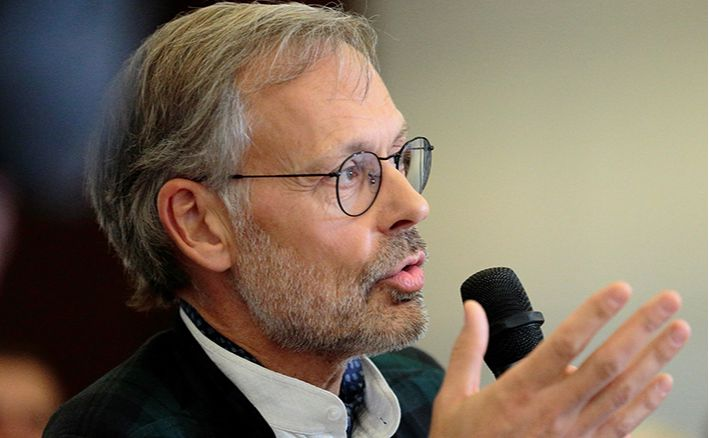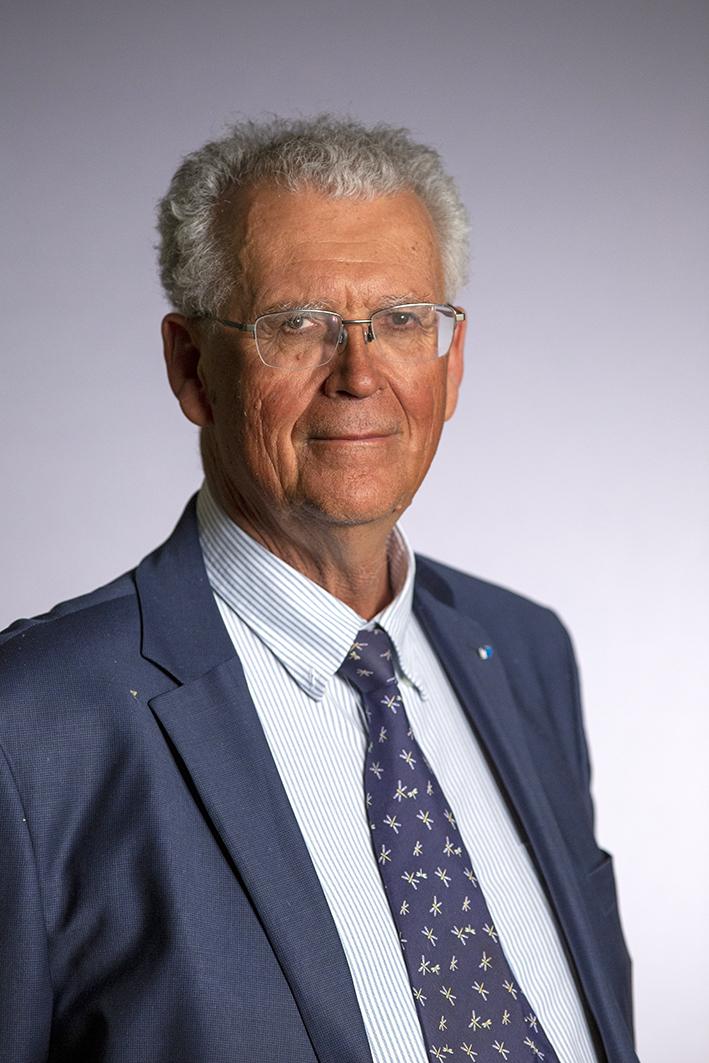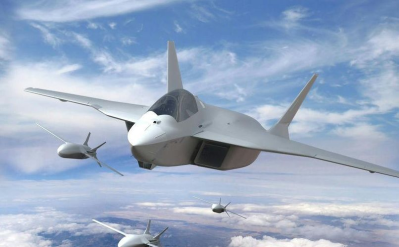News

INTERVIEW with Denis Ranque
Article published in Lettre 3AF N°4-2023

©_Gael_Kazaz
Denis Ranque, born in 1952, is a graduate of École Polytechnique and École des Mines ParisTech.
He began his career at the French Ministry of Industry, in the energy sector, before joining Thomson-CSF in 1983.
After holding various operational positions in this group, in electronic tubes and sonar systems, he was Chairman and CEO of this group, renamed THALES, from 1998 to 2009.
He was Chairman of the Board of Directors of TECHNICOLOR (2009-2012) and AIRBUS (2013-2020) and Director of Saint-Gobain and CGG VERITAS, and now of CMA CGM.
He has also been Chairman of the Board of Mines ParisTech, of the Fondation de l'École Polytechnique and Chairman of the Cercle de l'Industrie, an association of France's leading industrial companies.
He has been President of the Académie des Technologies de France since January 2022.
You recently published a report on sustainable fuels for aviation. First of all, could you remind us what the Académie des technologies is? When and why was it created?
Our Academy is young, born at the end of 2000; it is the daughter, now grown up, of the Academy of Sciences, which had foreshadowed its existence in a Committee for the Application of Science, over the previous twenty years; our founders and the Government judged at the time that technologies, whose importance in the lives of citizens is unquestionable, justified a full-fledged academy.
We are structured not by technical discipline (mechanics, chemistry, electronics, etc.), but around a number of essential goals, which are in fact as many challenges: food, health, industry, housing and mobility, but also the environment, culture... with a strong emphasis on both economic and social dimensions.
That's why our motto isn't "Long live techno!", but rather "For Progress that's reasoned, chosen and shared", because we pay a great deal of attention to the interactions between technology and society.
What are your main roles and activities?
Our academy brings together eminent scientists and recognized personalities from the socio-economic world, particularly industry, education and research.
It leads reflection and formulates proposals on issues relating to technologies and their interaction with society. Its aim is to promote technological development that serves mankind, the environment and sustainable well-being.
It can be called upon by the public authorities, or act on its own, to issue independent opinions on major technological choices, and provides reference information to inform public debate.
Since mid-2022, at the request of the people in charge, we have been contributing to the major France 2030 program, which represents an unprecedented government effort to promote our country's technological and industrial development.
What makes this institution different from other organizations working on the same issues?
In the current context, where expertise is being called into question, where fake news has more impact than real news, we aim to become a "trusted third party" on technologies, expressing ourselves in complete independence and seeking only the general interest, which is a unique positioning in our country, for our field of expertise.
We surprised observers by publishing a document on "Sobriety" last May.
"Sobriété", emphasizing that, while technologies are essential to meeting the climate challenge, they will not be enough, and must be complemented by a change in individual and collective behavior and even values, in the direction of satisfying "just needs".
Are you particularly interested in energy? Aeronautics?
Energy occupies a special place in our academy, as it is the key to economic activity and human well-being, but it also makes a major contribution to greenhouse gas emissions, and hence to climate change. We devote, directly and indirectly, around a third of our work to energy.
The necessary energy transition concerns not only the means of energy production, but also all its uses: it is in fact a revolution, whose major components are technological, industrial and economic, but also social and political, and which is therefore at the heart of our mission.
We also work on major industrial sectors, including aeronautics and space, and we have experts in this field among our ranks; but this is not, of course, a specialty for us, as it is for the eponymous academy, with which we cooperate regularly.
What have been your main achievements in these areas?
At the crossroads of energy and aeronautics, we recently published a report on sustainable fuels for aviation, which is presented in this issue of your magazine. It will shortly be supplemented by a "roadmap" for the implementation of these fuels in this sector and in the shipping sector, where the issues are similar, since these two sectors each account for around 3% of global emissions.
We show the technical feasibility of these fuels, identify the technologies available and those still to be developed, and the conditions for success. Of these, the most important is the availability of large quantities of decarbonized electricity. Another conclusion is that such production will have to take place in large industrial units, combining H2 production by electrolysis, CO2 capture to provide the carbon component, and chemical synthesis of the fuels, not only to eliminate the cost of intermediate transport, but also to optimize energy efficiency.
As part of France 2030, we have also been working on the revival of nuclear power. Our academy was one of the few institutions that dared to remind us regularly, during the years of doubt and uncertainty in our country, of the importance of this energy source from an economic, strategic and environmental point of view: Nuclear power plants produce low-carbon, controllable energy, with a secure energy supply.
But we have always been careful not to pit nuclear power against renewable energies, which are also essential if we are to achieve decarbonization. The positions taken by extremists on both sides of the debate have only served to defer investment in both areas.
After some twenty years of hesitation, we now need to relaunch the industry with the construction of EPR2 reactors in series. The nuclear industry will benefit from economies of scale if it can develop within a calm framework, enabling it to benefit from series orders well beyond the six reactors decided upon. We also stressed the urgent need to "close" the fuel cycle, by developing a reactor chain capable of using plutonium from reprocessing, and fissioning all uranium atoms.
For us, aeronautics and astronautics are formidable examples of technological development, and the scientific, technological and societal developments we can analyze are often studied and illustrated by this sector with its international stakes.
In 2022, for example, we will be devoting a session to satellites and "new space", and in 2018-2019 we will be organizing a symposium and a report, in cooperation with the French Air and Space Academy, on the management of major programs, drawing on lessons learned from aeronautics for other sectors.
More generally, what are your main messages on the energy and ecological transition, across all sectors?
The transition currently required is a formidable challenge, the biggest of all time, because it has to be extremely rapid and, of necessity, universal and coordinated. It took us one and two centuries respectively to become dependent on oil and coal; we need to learn to do without them in barely a quarter of a century.
Indeed, achieving Net Zero by 2050 would mean moving almost entirely away from fossil fuels. If an incompressible balance remains, it will have to be offset by CO2 capture and storage, whose potential is limited by nature.
In practice, there are only two ways to replace fossil fuels in their various applications:
- Biomass, which emits CO2 but has already captured it through photosynthesis. It is therefore "carbon-neutral", but in limited quantities and with conflicting uses.
- Decarbonized electricity (renewable and nuclear), which will provide the bulk of the conversion. Primary energy sources such as renewables (wind, hydro and solar) and nuclear power can only be used once they have been converted into electricity, apart from a few limited uses in the form of direct heat.
For several years now, our academy has been pointing out that our country is systematically and dangerously underestimating its electricity needs by 2030, and even more so by 2050. Today, eyes are opening and it is becoming clear that the electric vector will be the most important means of decarbonization:
- Either directly in applications where the problem of storage does not arise, such as heating buildings (heat pumps) or some industrial uses, or can be solved relatively simply, such as electric vehicles;
- Or indirectly, by transforming electricity into synthetic fuels:
hydrogen, SAF, methanol, ammonia... for transport (air, sea and heavy road) and other industrial uses.
At European level, we have formulated an opinion on the Union's energy policy, the difficulties and dead-ends of which we have highlighted in relation to French national policy, which we support. Contrary to the Treaties, which leave it up to each Member State to choose its own energy mix, European policy de facto imposes its own mix, prescribing the means of decarbonization and not just the corresponding objectives, and failing to set any security of supply targets.
Finally, to ensure our reindustrialization, which is absolutely necessary for reasons of economic balance, social cohesion and, above all, sovereignty, we need decarbonized, abundant and competitive energy. How can we do this in a continent where energy is expensive and, what's more, where "carbon leakage" is unavoidable?
"carbon leakage" is uncontrolled? Europe's determination to set an example is inextricably linked to the implementation of a coherent and effective carbon adjustment mechanism at the Union's borders. Especially in the face of continents with massive support mechanisms, such as the USA (IRA) and China! ■
To give you a sneak preview of the complete digital version of the 3AF Newsletter,
Go to your member area and check the Mail/subscriptions tab:
I would like to subscribe to the 3AF Newsletter.









No comment
Log in to post comment. Log in.